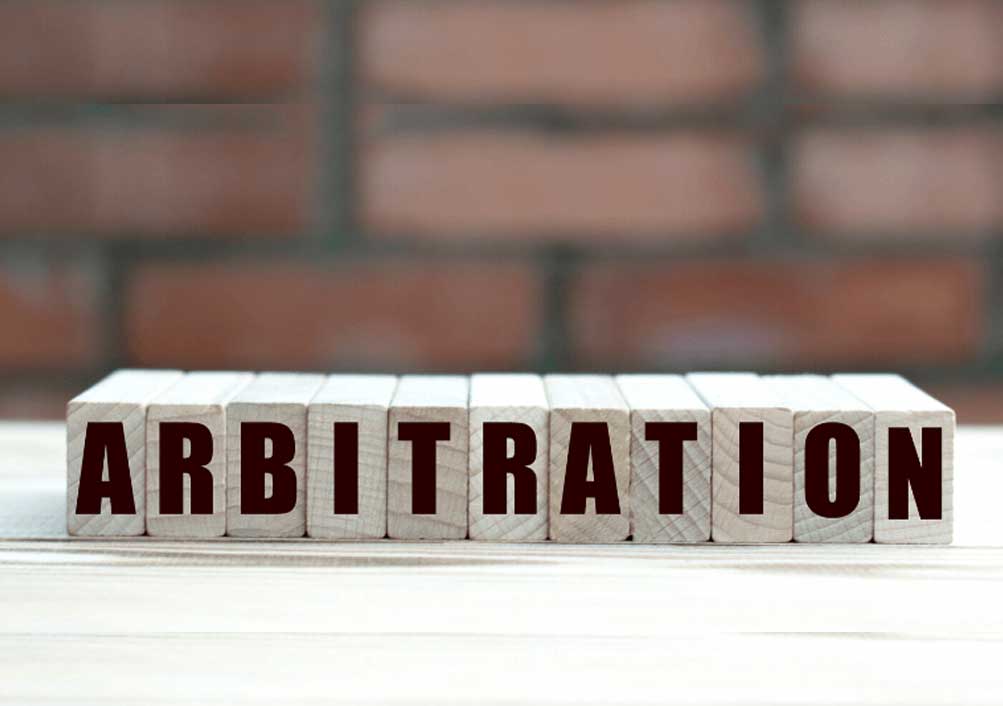In ARBITRATION APPLICATION NO. 149 OF 2021-BOM HC- Section 40 of A&C Act recognizes salutary principle that rights of party to arbitration agreement would not stand extinguished by death of any party to such agreement: Bombay HC Justice G.S. Kulkarni [06-06-2022]

Read Order: PRIYA RISHI BHUTA AND ANR VARDHMAN ENGINEERS AND BUILDERS AND ORS
Mansimran Kaur
Mumbai, June 7, 2022: Referring to Section 40 of the Arbitration and Conciliation Act, 1996 which recognizes the salutary principle that the rights of a party to an arbitration agreement would not stand discharged and/or extinguished by the death of any party to the arbitration agreement, the Bombay High Court has allowed the application filed under Section 11 wherein the applicants prayed for settling of the disputes arising from the partnership deed between the applicants and the respondents by way of Arbitration.
A Single Bench of Justice G.S. Kulkarni was considering four application were instituted under Section 11, whereby the applicants, who claimed to be the daughters of the deceased Amritlal Jain, who was a partner in a partnership firm- the first respondent, were praying for settling of the disputes arising from the partnership deed between the applicants and the respondents by way of Arbitration. The applicants invoked the Arbitration clause stated in each of the partnership deeds. The facts with respect to all the applications were common, except the first respondent in each of these applications was different. However, the arbitration clause in each of the partnership deeds was similar.
Factual matrix of the case was such that first respondent was the partnership firm of which the applicants claimed to have interest as per the partnership deed. The second and the third respondent were the existing partners. The fourth respondent was inducted as a partner after the death of the applicant’s father. The case of the applicant was that 20 % share in the profits and losses of the first respondent stood in the name Ustave Amritlal Jain (the father of the applicant) and Amrit Jain introduced his parents as well as himself as the partners in the first respondent firm.
After applicant’s parents expired, the “Deed of Retirement- cum- Partnership” came to be executed whereby the fifth respondent diluted his share in the partnership in favor of his sons , the sixth and the seventh respondent who were included as partners. Thereafter the applicants filed a civil suit before this Court against the second respondent and the third respondent for administration and partition of the estate of the deceased Amrit lal Jain and Utsav Jain. The applicants, while claiming their rights in the partnership firms, de hored the civil suit filed by them and invoked the arbitration agreement as contained in clause 19 of the 2012 Deed of Partnership through a notice addressed to the respondents. The prime issue that was to be considered was whether the applicants have any arbitral interest to invoke the arbitration agreement as contained in the Deed of Partnership.
In view of the same, the Court observed that a party seeking reference of the disputes to arbitration would be required to satisfy that such party is a party to an arbitration agreement and seek reference of the disputes to arbitration. In other words, a person who is absolutely alien and not a party to the arbitration agreement cannot invoke the arbitration agreement, the Court remarked. It was further observed by the Court that the legislative intent to this effect can also be discerned from the amended provisions of Section 11 by insertion of sub-section (6A) as incorporated by 2016 amendment with effect from 23 October, 2015, namely that the Court considering any application under sub-section (4) or sub-section (5) or sub-section (6) of Section 11, shall notwithstanding any judgment, decree or order of any Court, confine to the examination of the existence of an arbitration agreement.
Further with the respect to the facts of the present case, the Court opined that the applicants were persons as recognized by the deed of the partnership who were conferred an interest in the partnership firm in the capacity as legal heirs.The Bench further refuted the contentions of the respondent pertaining to the proposition based on false premises that once the applicants had filed the civil suit for administration of the estate of the deceased, thus they could now not seek the remedy to assert their independent rights by way of arbitration. To this, the Court stated that a prayer for administration of estate or partition of the estate of the deceased parents of the applicants is a matter completely inter se between the applicants and respondents, first and second. The suit cannot be said to be confined to what has been espoused by the applicants by reference to arbitration which is purely qua the partnership firms, the Court noted.
The next contention of the respondents that the applicants were not the parties to the arbitration agreement was also simply negated by this Court on the ground that the plain language of clauses 17 and 19 acknowledged the rights of the legal heirs to be partners qua the partnership deed and the share of the deceased partners and referred to Section 40. In light of the aforesaid observations, the Court observed that the applications instituted by the applicants were completely maintainable
Sign up for our weekly newsletter to stay up to date on our product, events featured blog, special offer and all of the exciting things that take place here at Legitquest.




Add a Comment